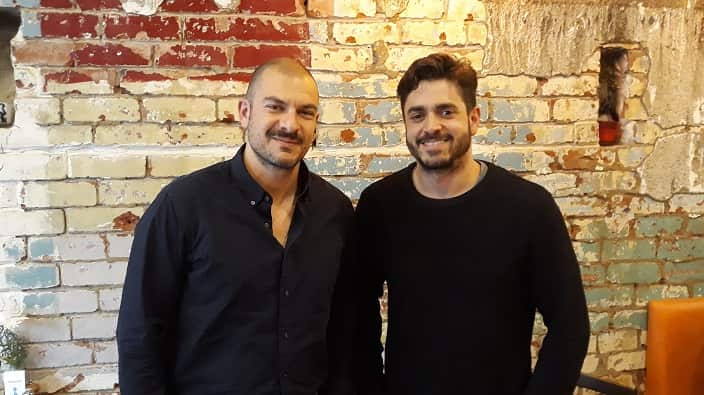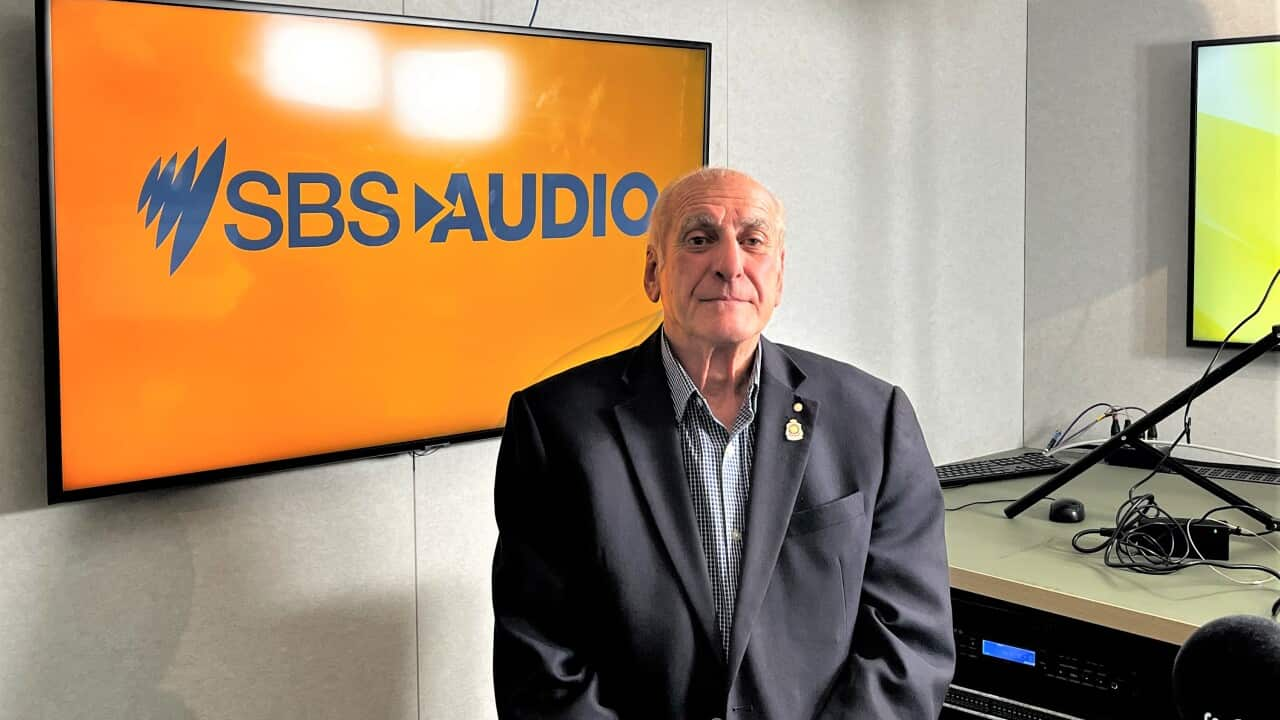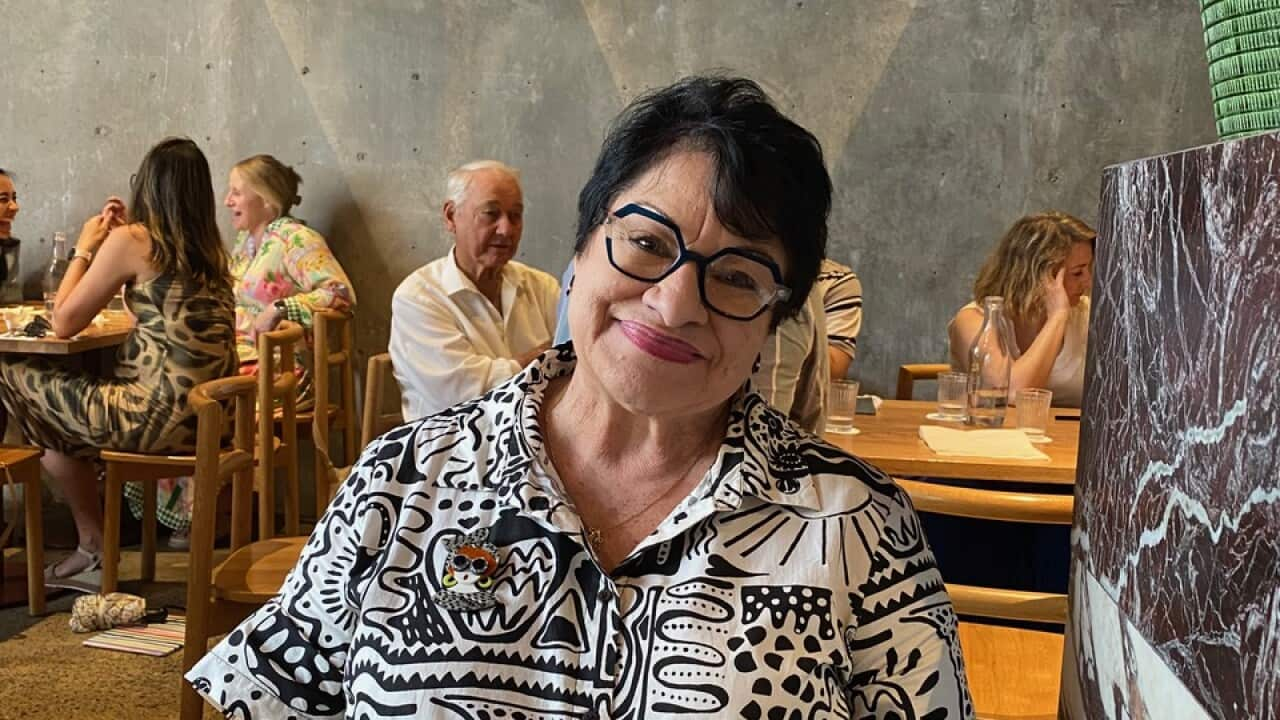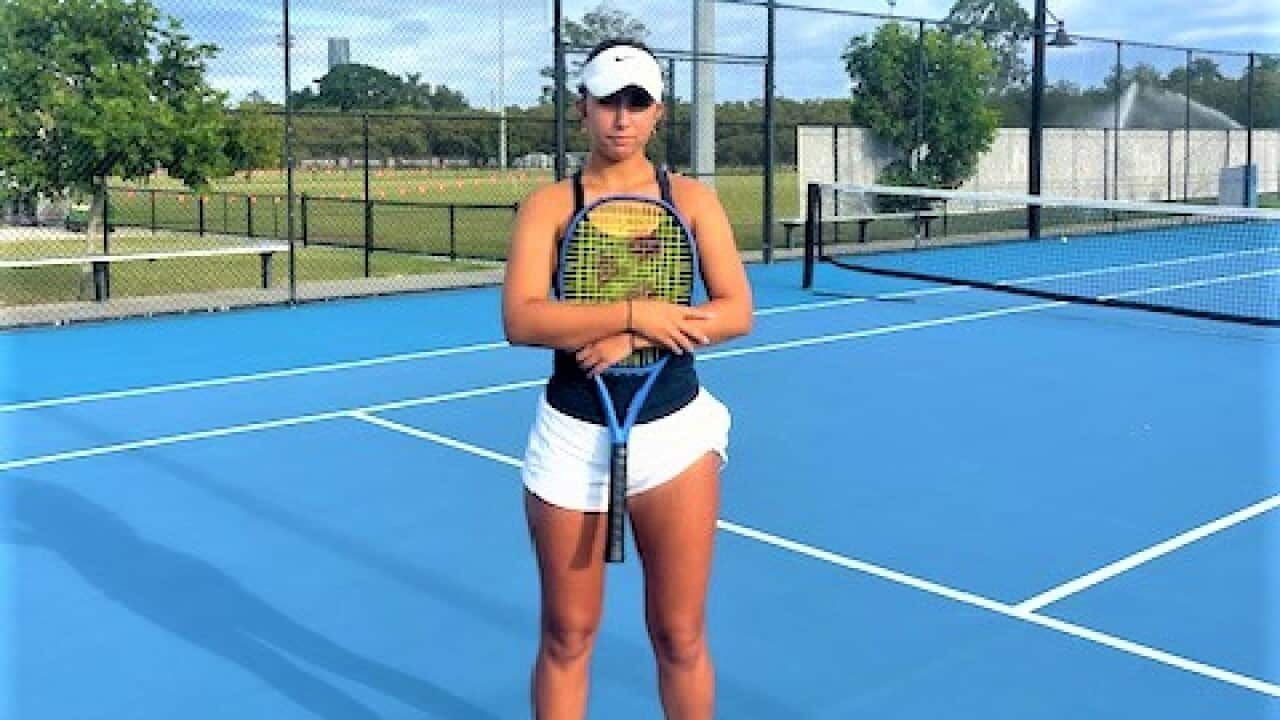Alex Tsitsopoulos previously did a production with 'Q44' based on the life of Crete’s most famous writer, poet and philosopher, Nikos Kazantzakis. He says that it was a tremendous experience and quite a daunting task to portray this legendary icon. 'Now I am working with some great artists and the play is directed by the same director Suzanne Heywood who directed me at 'NK: A Kazantzakian Montage', and my acting opposite is Gabriella Rose-Carter who is the creative director of the company. That's been such an amazing and special experience’, he told SBS Greek.
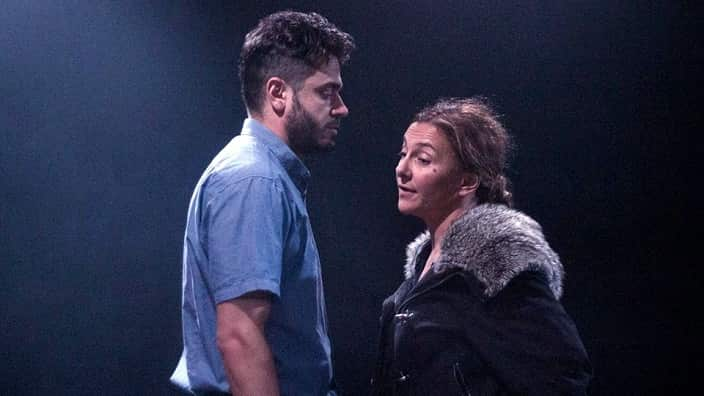
One of Daria statements at the play is the following. ‘What is most important in this life, is this thing you have, that no one can take from you.' Do we have things today that cannot be taken from anyone or is there a price tag for everything?
‘This is a line spoken by Darja who is the protagonist in the play. 'It really hits the crux of her impetus; that drives her through the play'. This is her greatest need and her greatest love that she has and holds it quite dear to herself. It is just something that each character has and keeps quite dearly.’
At some point, Tommy says that there is always something that we think it's precious and we cannot give it away or no one can take it from us by force. Do you have anything inside you that cannot be taken?
'I don't know if you can be truly possessive with something that is precious, but you have to share it. Whatever that thing is, it's yours but it's also to be shared. I think there's something almost paradoxical about that.’
Darja tries to negotiate a deal with Tommy. She will accept him back if he pays her $3000. Money is what she wants because without money, she says, there is no security. Why is money the most important thing today?
‘It's an inevitable issue that we all need to confront and we all have different ways of confronting. Someone like Darja who's coming from a war-torn country to a place like America. Of course, this is going to be a huge issue for her to try and secure herself financially to survive and that's understandable. Money is important but it's not the most important and this is what the play also sheds light on. There are other things that are more precious like, people, human beings, love etc.’
Image
Tommy is the cheating boyfriend. He is a bit abrupt with Darja, he lecturer her, he makes endless excuses, Tommy yells to her and whenever she tries to say something, Tommy stops her. Do you think ‘Ironbound’ is about a weak woman in an authoritarian masculine world?
‘Not at all, if anything, it could be perceived as exactly the opposite. It's about a strong woman and men who are not strong enough to take responsibility of their lives and as of that they make excuses. I definitely think Darja’s character is very strong, it has a lot of resilience and spirit that drives her to survive and to confront Tommy for his infidelities.’
How difficult was it for you to establish a career having a Greek surname?
‘I have felt someone who has been an outsider in a way because it is a foreign name, it is not an Anglo-Saxon name. On top of that, it's a name difficult to pronounce to the English speaker. I have felt those pressures. However, things are changing now, there is a bit more diversity in casting in terms of people’s looks and names. I don't really feel that anymore and it could be a sign of the times but it's also maybe the fact that I've already established myself enough as an actor that doesn't pose as much of an issue now.’
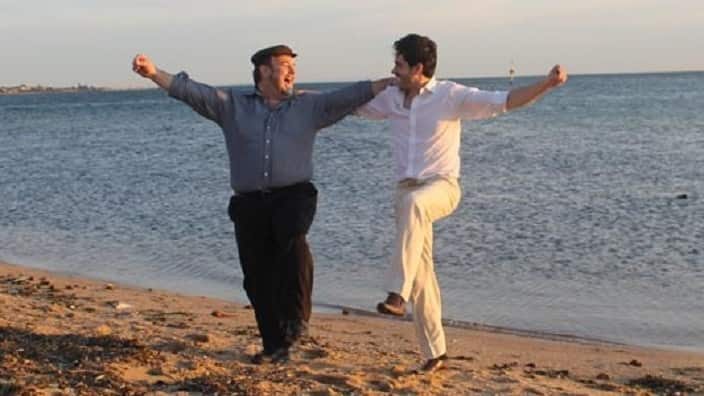
Where is your family coming from?
‘My father grew up in Athens, my mother was born in Australia and her parents are from Samos island. They left Samos as children and they moved to Jerusalem. They had an uncle who was an Archbishop at the Greek Orthodox Church. They grew up there and then they migrated from Jerusalem to Melbourne in 1950. My mother returned to Greece where she met my father in Athens, they got married there and they came back to Australia.
My parents were big advocates of the arts. My mother has always been a patron of the arts; theatre, music, ballet, museums. When she realised that her son was interested in performing, it was very easy for her to embrace that and encourage it. My father, as well, who grew up amongst ‘kallitechnes’ (‘artists’ in Greek) and all his friends were musicians, actors etc. They enrolled me in a drama school when I was in adolescence. That's how it all started.’
Could you tell us about your future plans?
‘I'm working on an exciting new series for Netflix. It's the first Australian Netflix production series that is called ‘Tidelands’. It's been filmed in Queensland and I can describe it as a supernatural crime drama.’
*’Ironbound is on until Sunday the 3rd of June, at Q44 Theatre Company in Abbotsford, Melbourne.
